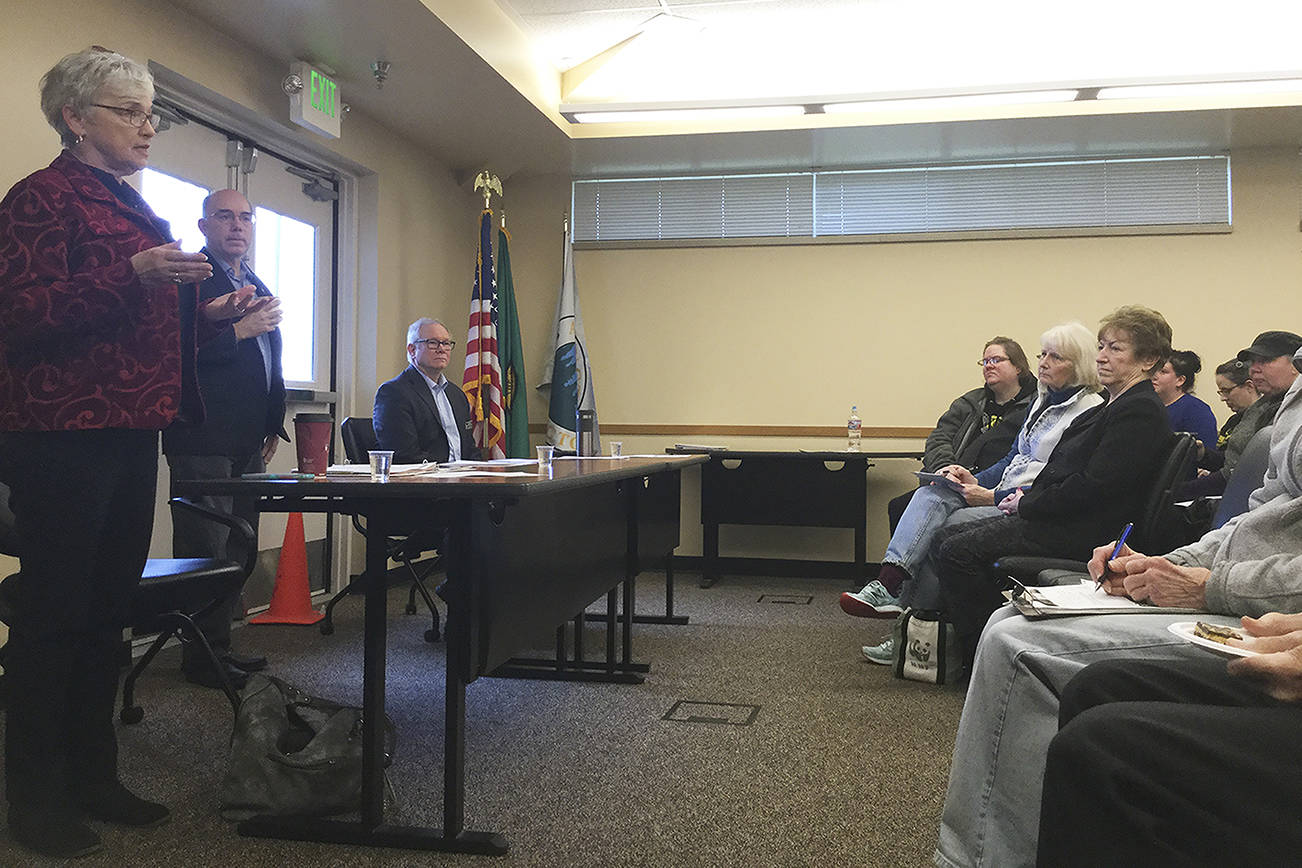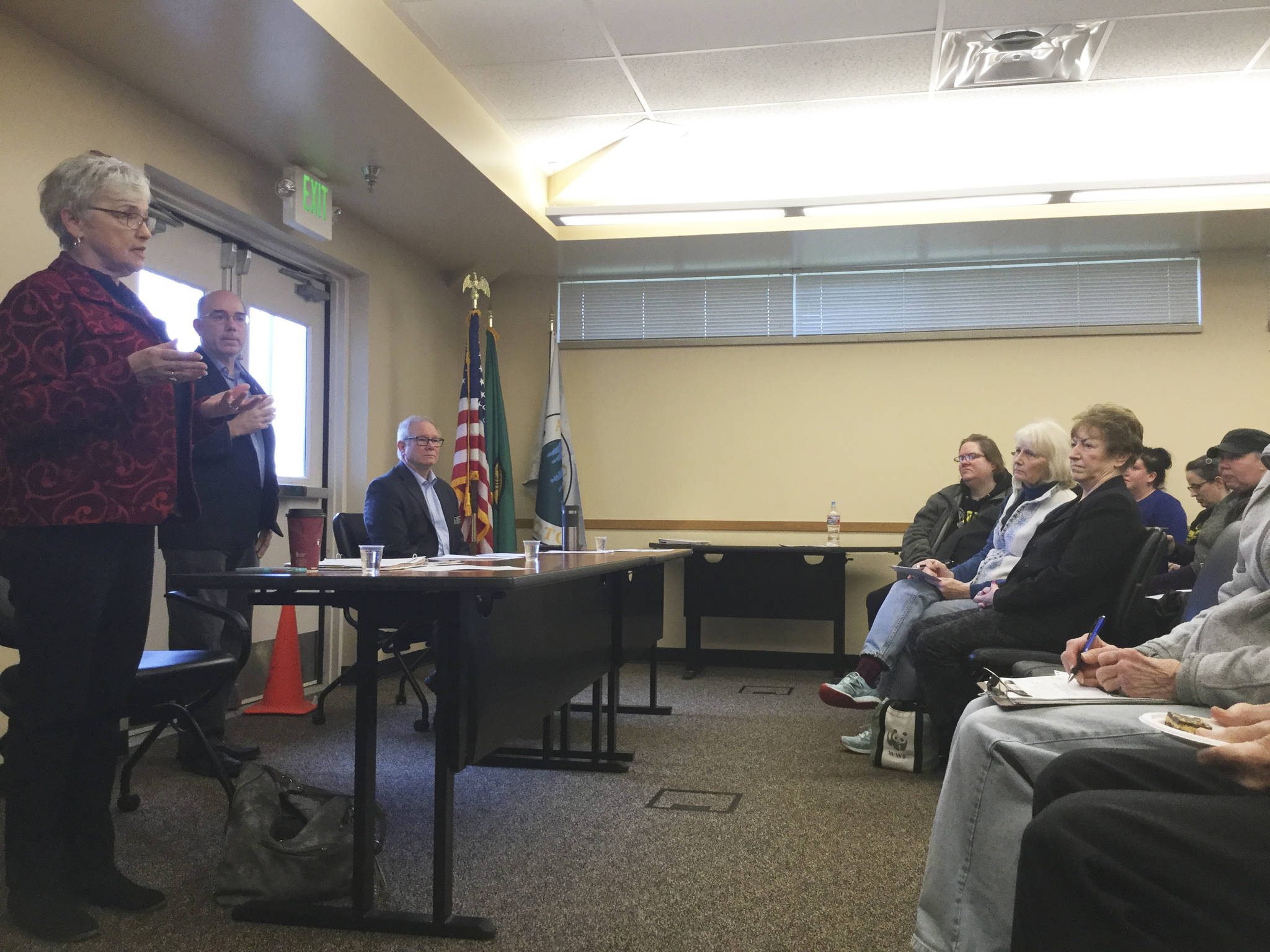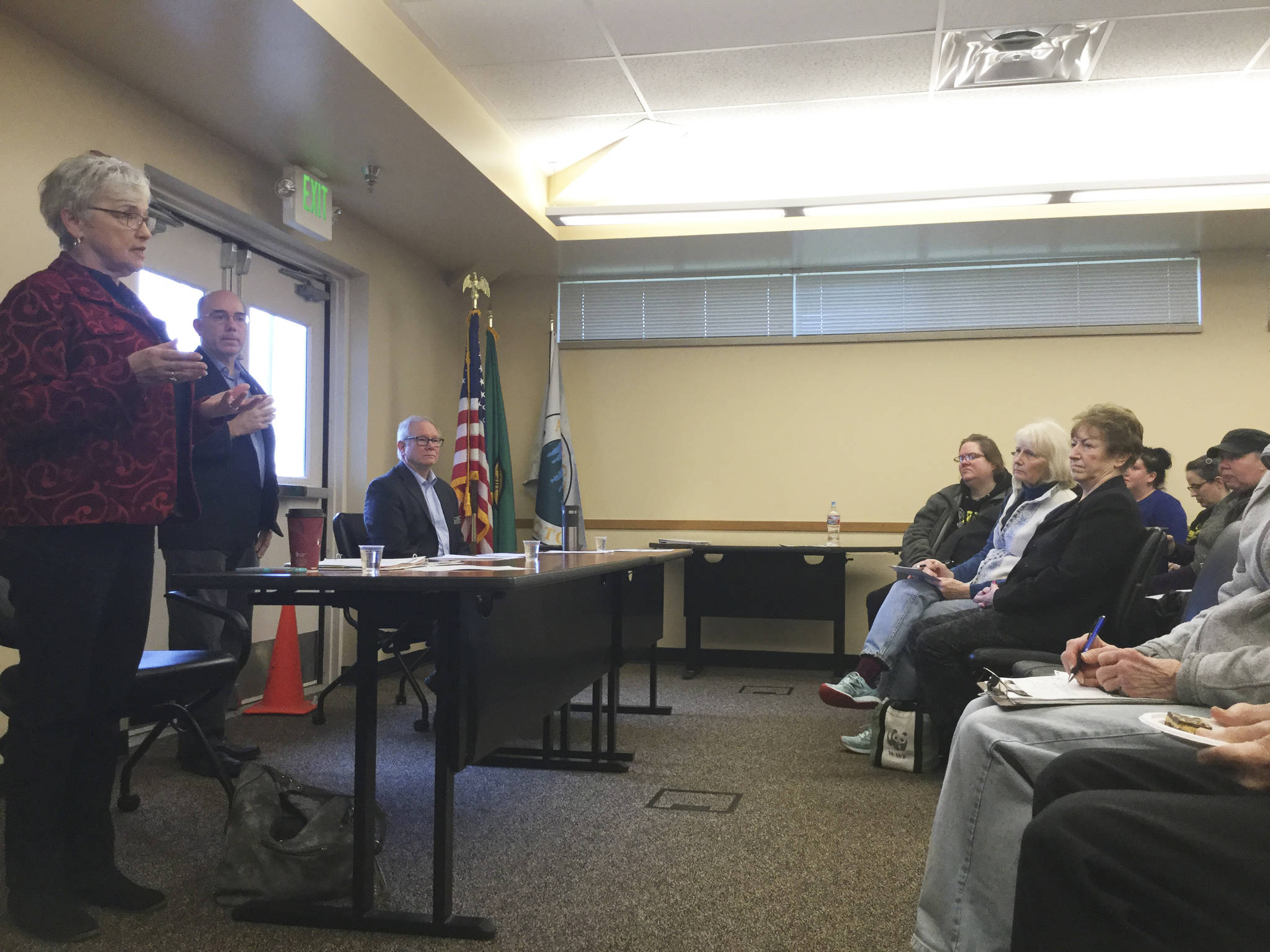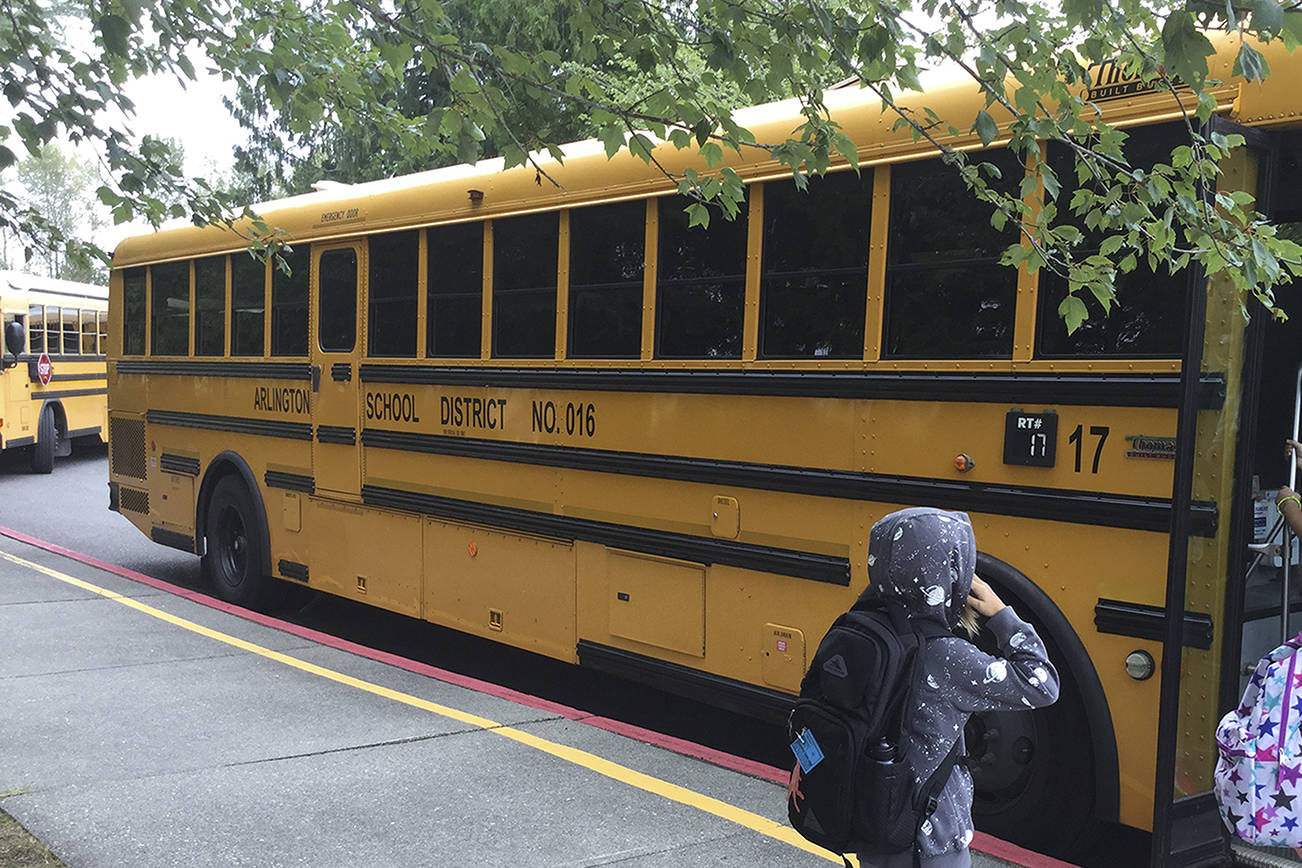ARLINGTON – Anti-gun legislation, sex education in classrooms, housing and transportation needs topped concerns of residents during a town hall meeting Saturday hosted by state 39th Legislative District lawmakers.
The meeting was hosted by Sen. Keith Wagoner, R-Sedro-Woolley; Rep. Carolyn Eslick, R-Sultan; and Rep. Robert Sutherland, R-Granite Falls.
The 39th District includes eastern Snohomish and Skagit counties, and northeast King County, representing a population of about 147,000.
In a standing-room only gathering at the Arlington Airport, lawmakers gave a progress report on the halfway mark in their 60-day legislative session while hearing from several residents among the 80 who attended.
“We’re here to listen to you; we can go on all day, because we’re up to our necks in it all day, and it drives us during this busy time,” Wagoner said.
Democrats hold a 28-21 majority in the Senate and a 57-41 edge in the House. While able to claim some successes working across party lines, Wagoner said: “Being this much in the minority has made it very difficult to get our policy issues to the floor and voted on. There has been some very onerous bills.”
Eslick said of the 1,700 bills introduced this session, 380 passed out of the House by Wednesday, and 270 out of the Senate; they are now in the opposite chamber’s committees. The legislative session is set to end March 12, with many bills not moving on that are deemed unnecessary to carrying out the two-year budget.
For the most part, Republicans have relied on an age-old strategy of massaging bills with amendments to the point where they can live with them, running out the clock on some bills, and other parliamentary maneuvers.
“Our job has been to try to amend the bills to make them a little less bad,” Sutherland said. “Our strategy isn’t to run the clock out, but that’s the effect of it. We held back the flood of bad legislation.”
Nowhere has this been more evident than in the slough of anti-gun legislation in Olympia that also drew the most ire from Saturday’s audience.
Guns
In all, 32 gun bills were introduced; by the 5 p.m. cutoff Feb. 19, only two made it through. The first measure, ESSB 6288, would collect statewide data on firearm violence including suicide, create a grant program for prevention programs and establish a state Office of Firearm Safety and Violence Prevention, which would work with law enforcement agencies.
The other bill, SB 6077, would ban high-capacity gun magazines that initially failed to gain enough votes as a policy bill, but was then reintroduced as a budget bill not bound by the cutoff deadline. Lawmakers said adding a buy-back component to the bill made it budgetary.
Initiative 1639, a far-reaching firearms measure approved by voters that took effect last July, has riled gun-rights advocates and led Republican lawmakers to exempt some gun owners with a Concealed Pistol License from background checks when they transfer, buy, sell or trade a gun. Wagoner sponsored a CPL bill to extend a holder’s license for two years with enrollment in voluntary training, but it died, too.
Sex education
Residents at the forum also wanted to know what was happening with a sex education bill in Olympia that by September 2021 would require comprehensive, mandatory and inclusive “age-appropriate” sex education for students as young as in kindergarten. Some used the word “despicable” to describe the bill.
Wagoner, who sits on the Senate Early Learning and K-12 Education Committee, said he tried to make it optional through local control by school boards.
“That’s why we have school boards, because they’re answerable to parents and teachers,” he said. “Maybe it’s an OK bill for some people in Seattle. I don’t know. If they want it, I wouldn’t be against it.”
Eslick said about 700 people showed up in Olympia against SB 5395. Surprisingly, she added, “Over half were from the (former) Soviet Union. They migrated here, saying ‘We do not want to live under that kind of government. Don’t tell us what to do.’”
The Senate approved the bill 28-21.
Single-family housing
Residents also took issue with SB 6536, which would ban single-family zoning in cities with a population over 15,000. The law wouldn’t require cities to build multi-family housing, but it would allow duplexes, triplexes, apartment buildings and increased development in areas previously limited to single-family zoning.
Wagoner, former mayor of Sedro-Woolley, said he prefers local zoning solutions.
“There’s a tough balancing act between accommodating our population growth and fitting within the rules of our urban growth areas, so I like to keep those solutions at the local level,” he said.
Wagoner said other lawmakers and bureaucrats in Olympia like a state down, cookie-cutter approach to carrying out public policy.
“I oppose all those approaches because I think that the government that’s closest to the people is more accountable to the people to be making those decisions,” he said.
School bond supermajority
In light of Arlington Public Schools and many other school districts’ failure to pass construction bonds in February’s special election, an attendee asked why levies only need a simple majority to pass, but the bar is set at 60% for bonds.
Wagoner said he supports the 60% requirement for the same reason it’s the threshhold for tax increases in the House and Senate.
“I always vote for the bonds, and I’m disappointed when they fail, but I think that it is a prudent safeguard for property owners who take the brunt of it, and there are people who don’t own property who get to vote,” he said.
Bills were introduced last year to only require a simple majority for bonds, too, but didn’t make it to the floor.
Mental health treatment for adolescents
Eslick pointed out one bill she is sponsoring, HB 2883, that passed out of the House 98-0, which would expand adolescent behavioral health access. The law would offer family initiated treatment for a minor 13 and older to a facility for inpatient mental health treatment or an approved substance use disorder treatment program.
“Mom and dad can make them go,” Eslick said. The bill is now being heard in the Senate. Wagoner said it’s a good bill.









